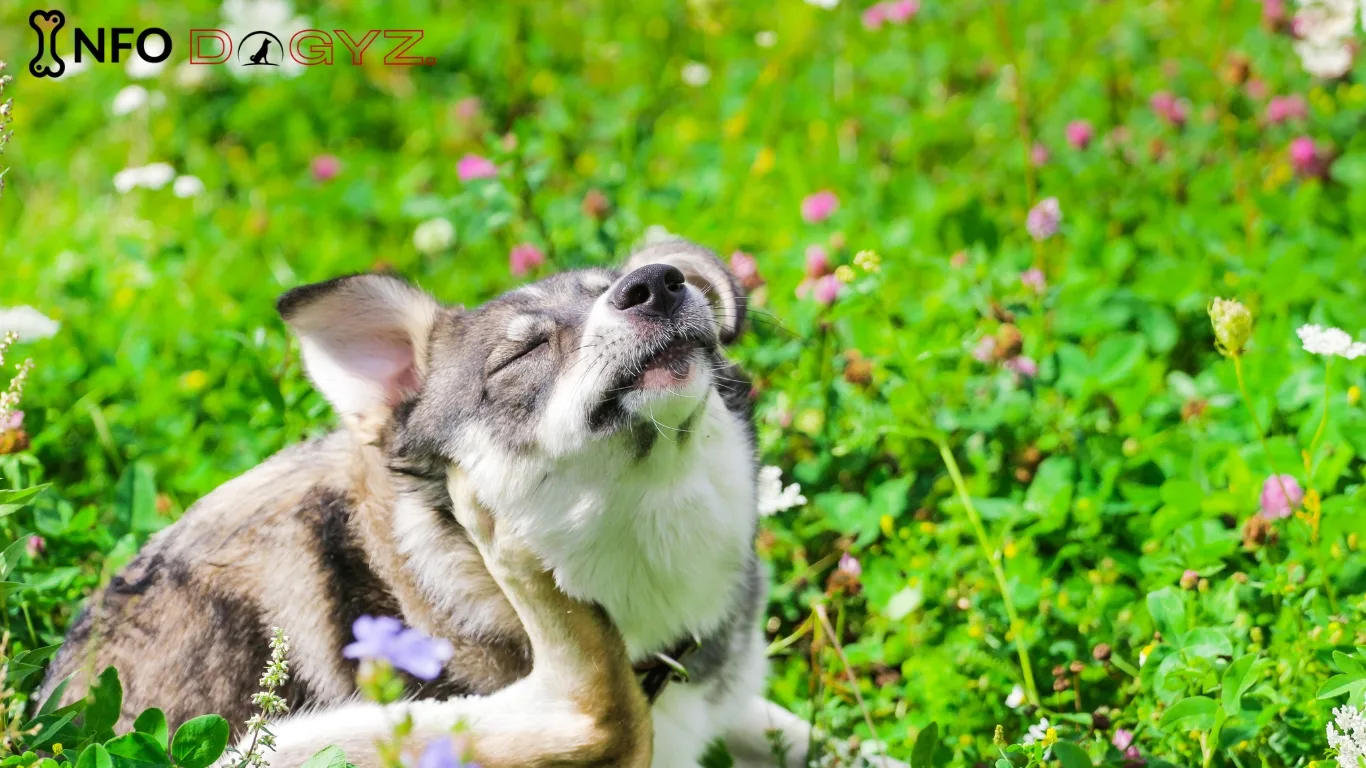
Imagine a sunny day in the park, the correct backdrop for your furry buddy to frolic inside the lush green grass. The excitement in your dog’s eyes as they bound toward the open discipline is contagious. But what if this picturesque scene was a nightmare because the one you love canine companion is allergic to the very issue they long to play on – grass?
In the sector of hypersensitive reactions, it is not simply humans that suffer. Dogs, our loyal partners, also can fall victim to hypersensitive reactions, and grass allergic reactions are noticeably not unusual. This weblog will delve into the fascinating world of dog allergic to grass, uncovering the causes, signs, and symptoms, and most significantly, how to assist your hairy buddy in leading a glad, itch-unfastened existence.
Prepare to explore the curious case of a canine who’s a love-hate courting with a splendid exterior. Discover the signs, solutions, and testimonies of puppy proprietors who’ve navigated this prickly course along their grass-sensitive pups. Let’s embark on an adventure to understand and assist our four-legged pals in overcoming the grassy terrain.
Table of Contents
What is a Grass Allergy in Dogs?
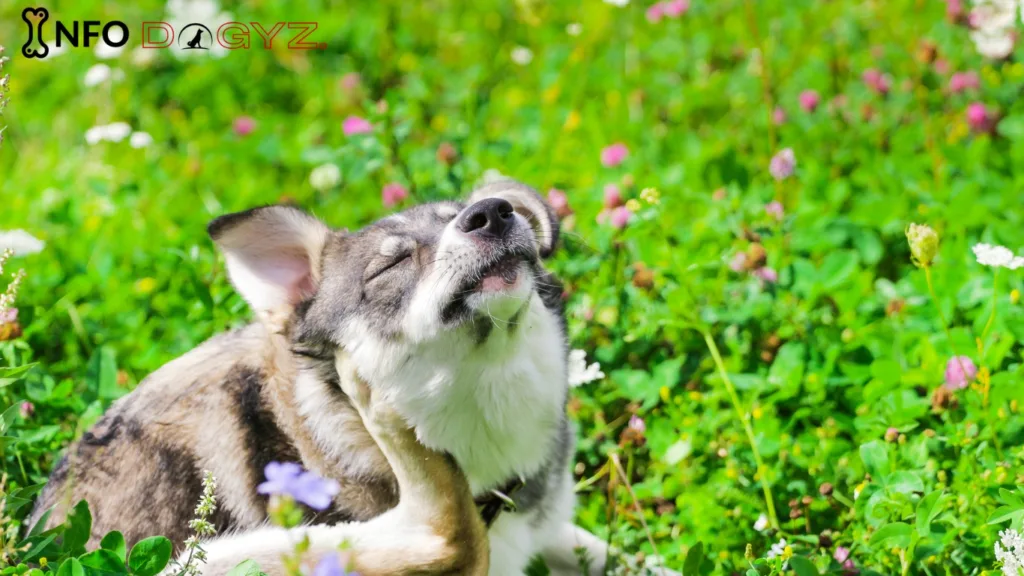
A dog grass allergy, often referred to as atopy or allergic dermatitis, is an allergic reaction to positive proteins observed in grass pollens. These tiny pieces of debris can cause an immune reaction in a few puppies, leading to diverse allergies. Understanding the specifics of this situation is vital for efficiently handling it.
What is the Mystery Behind Dog Allergic to Grass?
The concept of a dog allergic to grass may seem mysterious. However, it is a natural and relatively common condition known as “canine atopic dermatitis” or virtually “grass hypersensitive reaction” in puppies. Here’s the mystery unraveled:
Allergic Reactions
Dogs, like humans, can broaden allergies to various substances, together with pollen, dust mites, and grass. When a dog allergies from grass, its immune system overreacts to particular proteins or allergens observed in grass. This immune reaction results in various allergic reactions.
How to Identify Dog Grass Allergy Symptoms?
Identifying grass-hypersensitive reaction signs in puppies can be essential for their well-being. Like people, dogs can broaden allergic reactions to various environmental elements, along with grass. Here are a few commonplace signs and symptoms to watch for:
Itching and Scratching
One of the most unusual signs and symptoms of a grass allergy in dogs is excessive itching and scratching. They can also scratch their paws, face, belly, or any location that comes into contact with grass.
Red or Irritated Skin
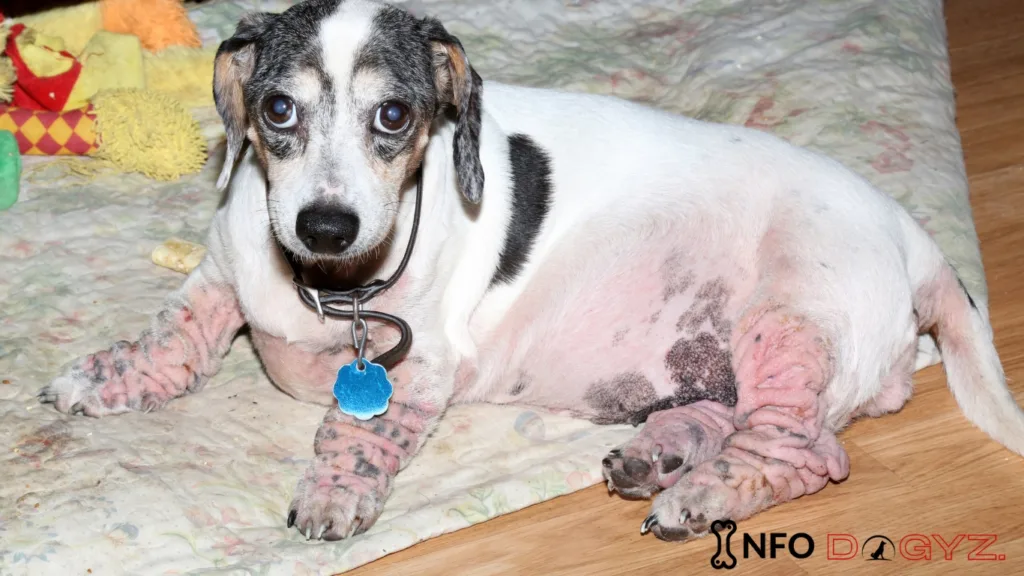
Dog allergic to grass can also lead to redness and inflammation in your dog’s pores and skin. You may also know red patches, hives, or raised bumps.
Watery Eyes and Runny Nose
Grass allergy in dogs may show signs and symptoms like hay fever in people. They may have watery eyes, runny nostrils, and even sneeze regularly.
Chronic Ear Infections
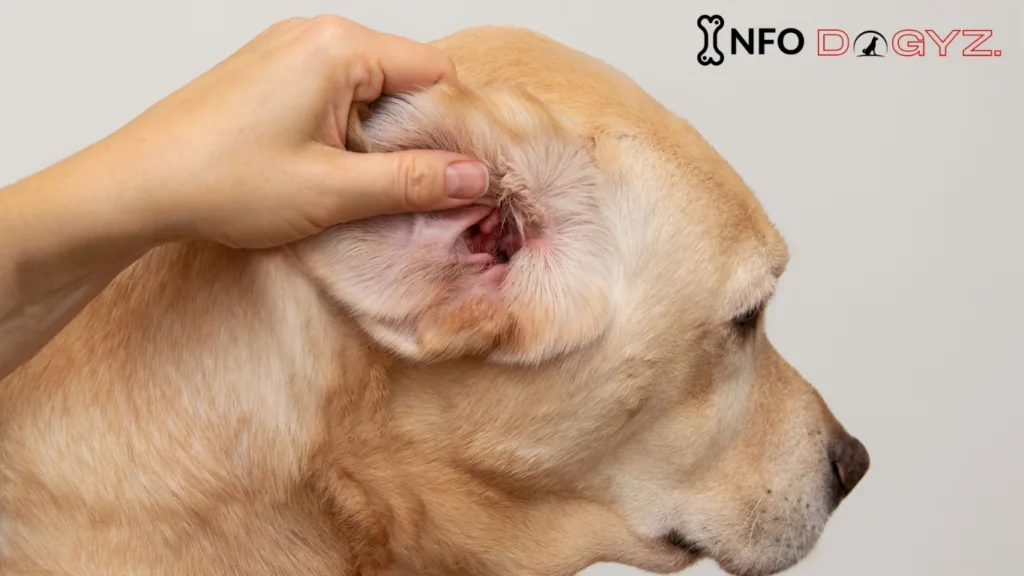
Grass allergic reactions can, once in a while, manifest as continual ear infections. If your dog often shakes their head or scratches their ears, it could be a sign of an allergic reaction.
Paw Chewing and Licking
Dogs can also bite or lick their paws excessively if they may be experiencing grass allergic reactions. This is frequently an attempt to relieve itching and discomfort.
Hair Loss
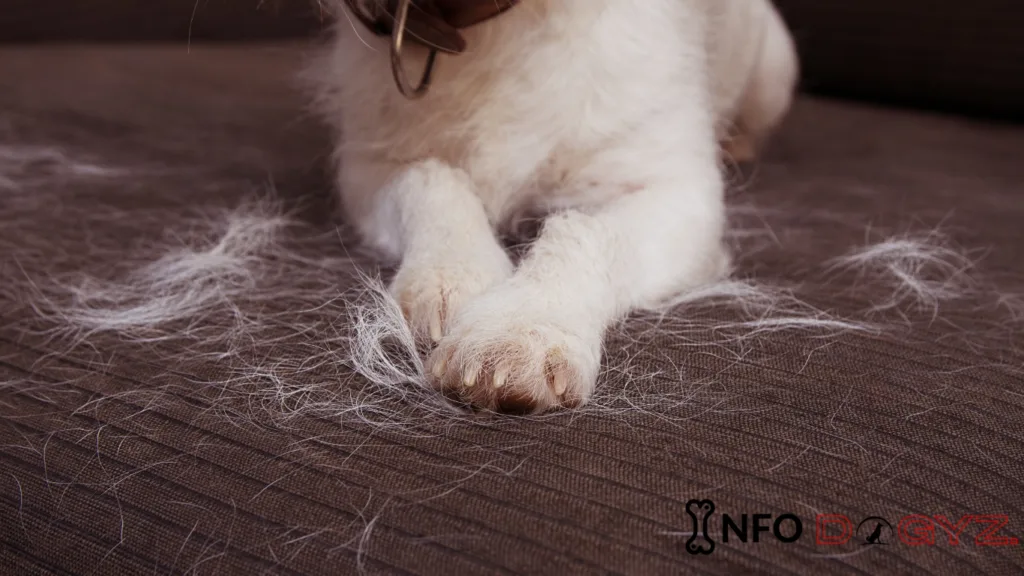
Prolonged itching and scratching can result in hair loss, particularly in areas where your dog has been scratching the most.
Vomiting or Diarrhea
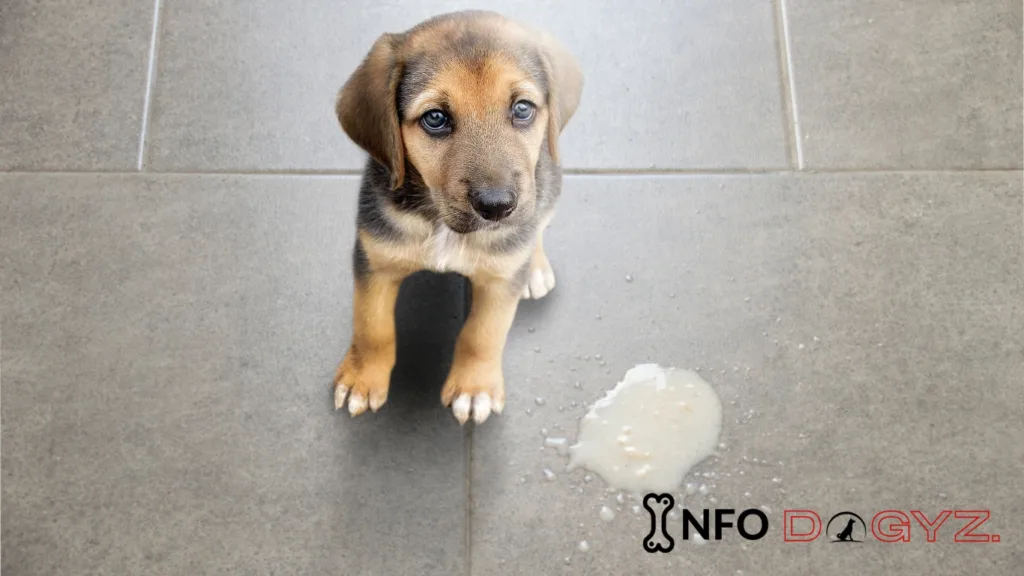
In some cases, dogs with grass hypersensitive reactions may additionally ingest grass while scratching or licking themselves. This can lead to digestive upset, resulting in vomiting or diarrhea.
Behavioral Changes
Allergies can make puppies irritable or tense due to their discomfort. If your canine unexpectedly exhibits changes in behavior or appears more agitated, it can be related to an allergy.
Inflamed Paws
Grass allergies can motivate your canine’s paws to emerge as infected and sensitive. You may observe redness, swelling, or sores among their paw pads.
If you observe your dog is allergic to grass based on these signs, it’s essential to seek advice from your veterinarian. They can perform pores and skin exams or blood exams to confirm the hypersensitivity and suggest the perfect remedy plan.
What Factors would be the Causes for Grass Allergy in Dogs?
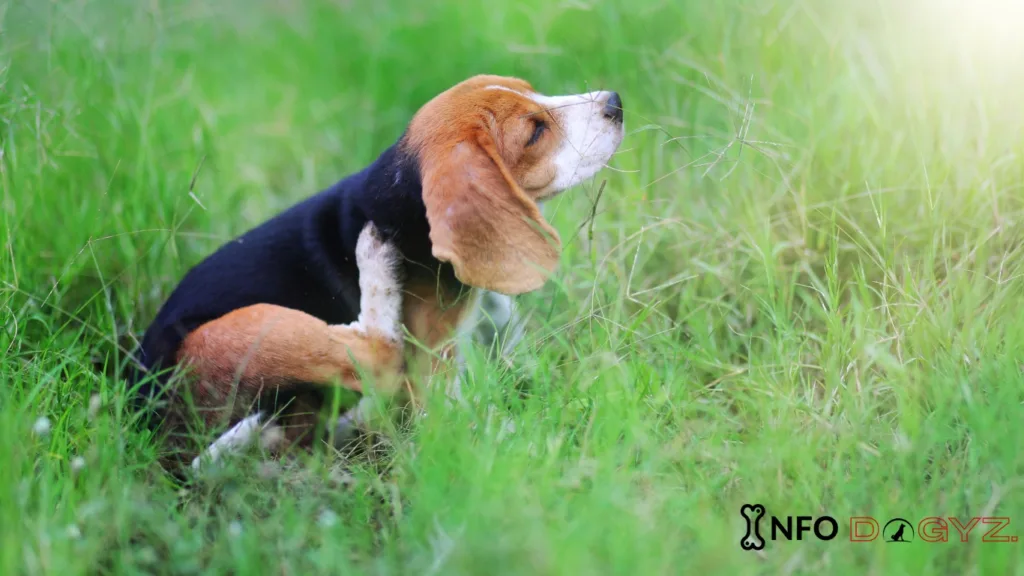
Dogs can broaden hypersensitive reactions to diverse materials, including grass. When a dog allergies from grass, its immune machine reacts negatively to specific proteins or other allergens present in grass. Here are a few key factors to apprehend the reasons for hypersensitive reactions in dogs:
Grass Allergens
Grasses produce proteins and pollen that may trigger allergic reactions in some puppies. Common grasses that puppies are probably allergic to encompass
Immune System Response
When a dog is allergic to grass, their immune machine mistakenly identifies the grass allergens as harmful invaders. This triggers an immune response, releasing histamines and chemical substances to fight the perceived threat.
Environmental Factors
Grass allergies can be seasonal or year-spherical, depending on the unique grass allergens involved. Seasonal allergies frequently arise when grasses launch pollen, generally in the spring and fall.
Genetics
Some breeds are more prone to allergies than others. Breeds, just like
- Labrador Retriever
- Golden Retriever
- German Shepherd
These can be extra susceptible to grass allergies. However, allergies can affect dogs of any breed.
Cross-Allergies
Grass allergy in dogs can also be sensitive to other environmental allergens, including pollen from bushes or weeds, dust mites, or positive foods. These are go-allergic reactions and might exacerbate their signs and symptoms.
What are the Dog Grass Allergy Treatments?
Grass allergy in dogs, additionally called allergic dermatitis or atopy, may be a common and troublesome difficulty for many puppy proprietors. Dog allergic to grass can also show signs and symptoms such as itching, scratching, redness, and skin inflammation. Fortunately, there are several powerful remedies and management strategies to assist in alleviating these signs and enhance your canine’s friendly lifestyle:
Avoidance
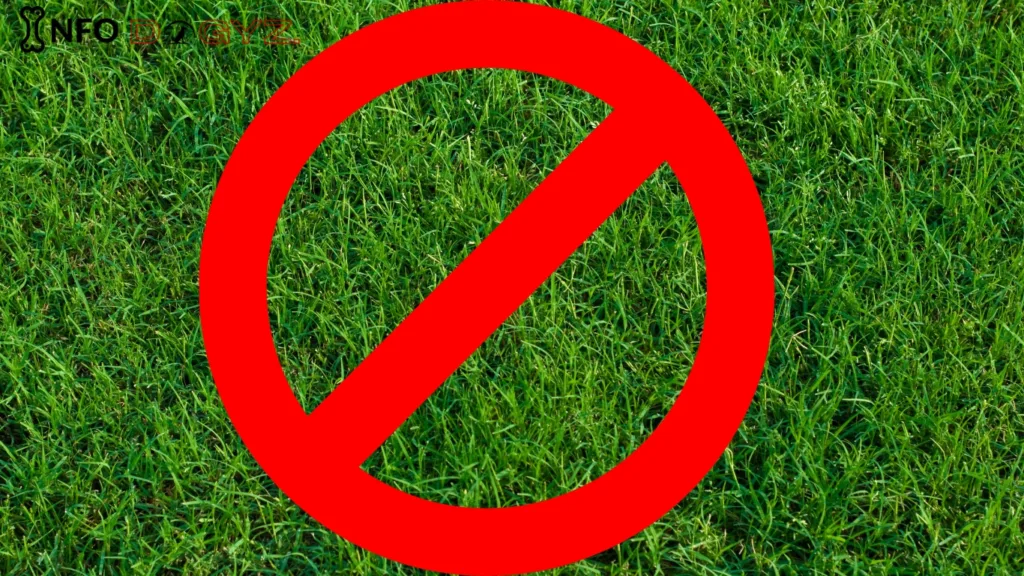
Limiting your canine’s exposure to grass is the most trustworthy way to manage grass allergic reactions. Keep your canine interior during excessive pollen seasons, particularly on windy days, when allergens are more likely to be in the air. Additionally, mow your lawn frequently and eliminate weeds to lessen the grass pollen for your on-the-spot environment.
Antihistamines
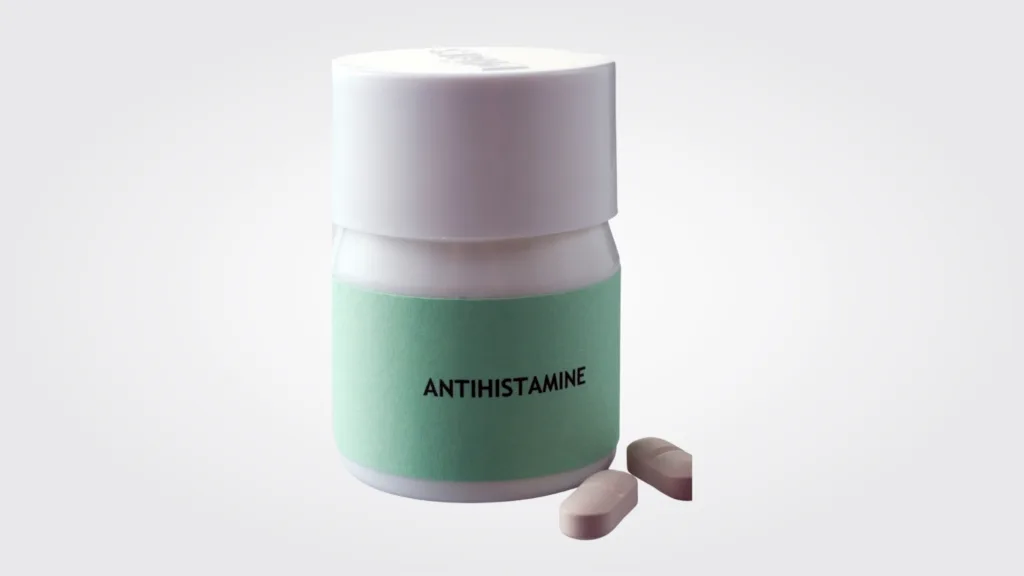
Over-the-counter antihistamines like Benadryl (diphenhydramine) or prescription antihistamines prescribed through a veterinarian can help relieve itching and irritation in a few puppies. Always talk with your vet before giving any medicine to your dog, as dosages can range primarily based on the canine’s size and unique desires.
Corticosteroids
In severe itching and inflammation, your vet can prescribe corticosteroids like prednisone or cortisone. These medications can offer short-term comfort; however, they should be used with caution and underneath veterinary guidance due to the ability aspect effects with long-term use.
Immunotherapy (Allergy Shots)
Allergen-precise immunotherapy, also known as hypersensitivity shots, maybe a tremendously effective long-term solution. It involves injecting your dog with small quantities of grass pollen over time to desensitize its immune system. This treatment is typically recommended for excessive or recurrent allergic reactions and calls for regular vet visits.
Topical Treatments
Medicated shampoos, creams, or sprays with hydrocortisone or oatmeal can soothe itchy pores and skin and offer transient relief. These products may be useful in handling moderate to slight signs and symptoms.
Fatty Acid Supplements

Omega-three fatty acids, which include fish oil supplements, can assist in enhancing your dog’s pores and skin health and decrease infection. Consult your vet for a suitable dosage.
Hypoallergenic Diet
Switching to hypoallergenic canine meals formulated for dogs with meals hypersensitive reactions or sensitivities might also assist if your dog’s grass hypersensitivity is annoyed with the aid of dietary factors.
Regular Baths
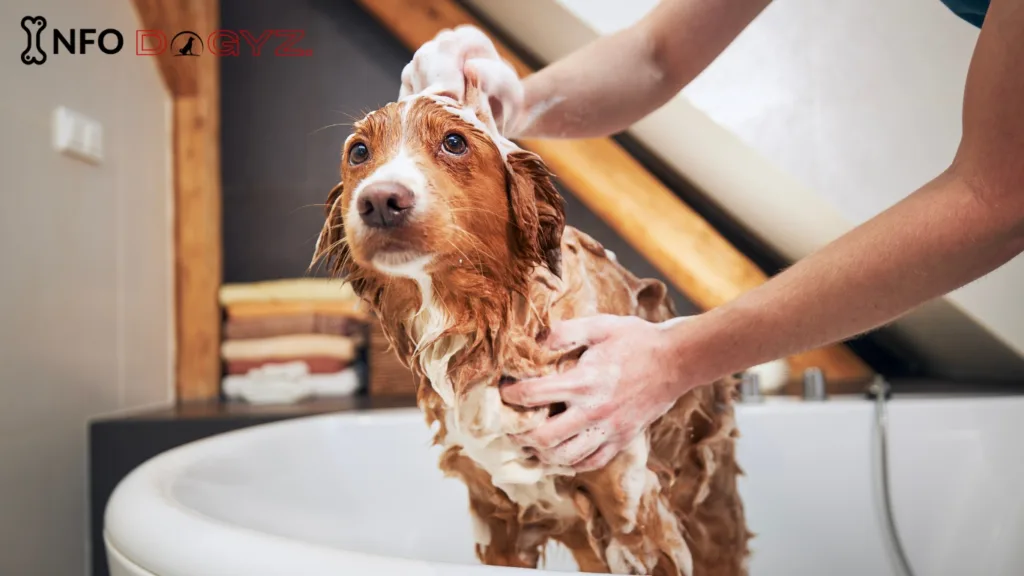
Bathing your canine frequently with a hypoallergenic or medicated shampoo can assist in putting off allergens from their coat and soothe their skin.
Environmental Controls
Use air purifiers with HEPA filters to lessen indoor allergens, and regularly clean your dog’s bedding and residing regions. Vacuum with a HEPA filter-ready vacuum purifier to cast off allergens from carpets and fabric.
How to Prevent Grass Allergies in dogs?
Preventing and managing grass allergy in dogs can significantly enhance their excellent lifestyles. Here are some steps you can take to assist in alleviating and preventing grass allergy in dogs:
Identify the Allergen
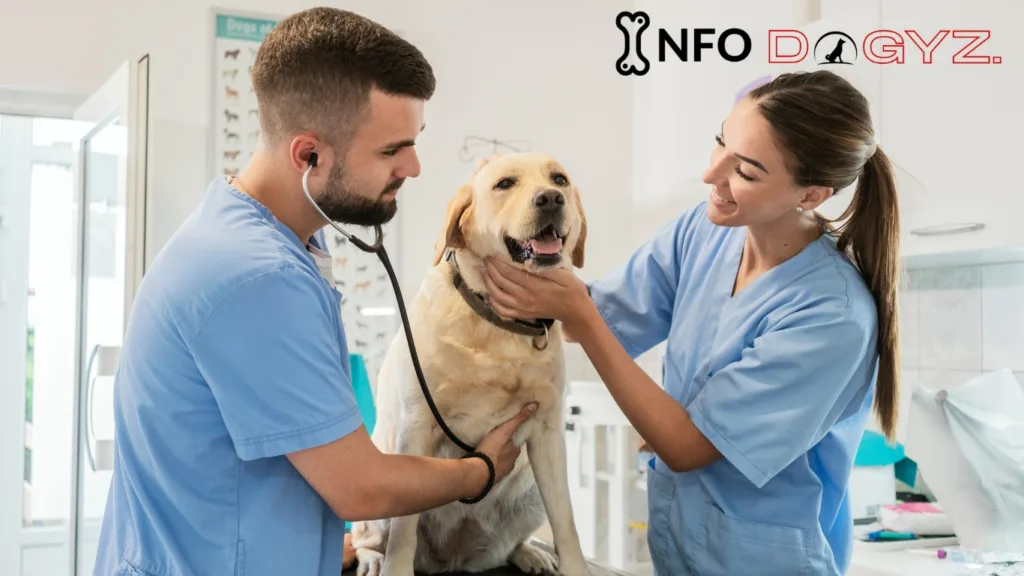
First, verify that your dog is undoubtedly allergic to grass by consulting with a veterinarian. Allergy testing can assist in pinpointing the specific allergen, which may additionally consist of grass pollen.
Limit Exposure
Minimize your canine’s touch with grass, particularly during peak pollen seasons (spring and summer). Keep them far from freshly reduced grass, and avoid permitting them to play in excessively grassy areas.
Regular Grooming
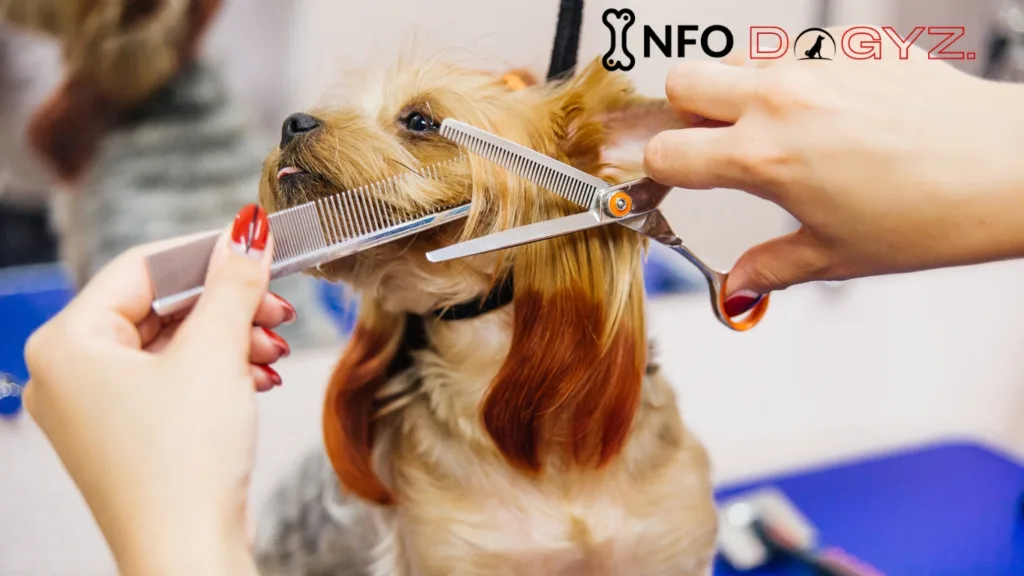
Regular grooming can help to reduce grass allergy in dogs. Brush your dog’s coat often to do away with pollen and different allergens that can be trapped in their fur. You can also use hypoallergenic or pet-safe wipes to smooth their paws and coat after outdoor activities.
Indoor Play
Create an indoor play region for your canine all through hypersensitive reaction seasons. Use puppy-pleasant turf or synthetic grass to provide a cozy surface for them to play without direct contact with actual grass.
Clean Living Space

Keep your home smooth by vacuuming carpets and fabric often. Use a vacuum cleaner ready with a HEPA clear-out to entice allergens. Wash your canine’s bedding and toys often in hot water.
Air Cleaner
Consider the usage of an air cleaner with a HEPA filter out in your home to reduce airborne allergens. Make sure to choose one suitable for pets and the size of your residing space.
Medication and Supplements
Consult with your vet about hypersensitive reaction medications or supplements that can assist in alleviating your canine’s symptoms.
- Antihistamines
- Corticosteroids
- Immunotherapy
These may be options to bear in mind.
Topical Treatments
Puppy-secure topical treatments like allergic reaction-relief shampoos and sprays can help soothe your canine’s pores and skin and decrease itching. Always discuss with your vet before using any new products on your puppy.
Allergen-Free Lawn Care
If possible, recall changing grass in your backyard with hypoallergenic grass varieties or other floor cover options that produce fewer allergens. Regularly mow the garden and keep it well-maintained to reduce pollen manufacturing.
Conclusion
Dealing with a dog allergic to grass may be challenging, but with the proper expertise and proactive measures, you can ensure your furry pal lives a satisfied, itch-loose life. Remember to consult your veterinarian for the correct diagnosis and treatment plan tailored to your dog’s needs. By taking those steps, you may help the pet you love thrive in any surroundings.
FAQs
Can grass allergies in dogs be cured?
Grass allergies in dogs can’t be cured, but they can be efficiently controlled with the proper treatment and preventive measures.
Are there any herbal treatments for grass allergies in dogs?
While a few herbal remedies may provide moderate alleviation, it’s crucial to consult your vet for correct scientific steerage.
Can grass allergy in dogs get worse through the years?
If left untreated, grass allergy in dogs can worsen over time, resulting in more excellent extreme signs.
Are all puppies equally at risk of grass allergies?
A few breeds are more predisposed to grass-hypersensitive reactions than others due to genetic elements.
Can grass allergy in dogs be existence-threatening?
In rare cases, extreme allergies can be existence-threatening. Immediate veterinary attention is critical in such situations.

